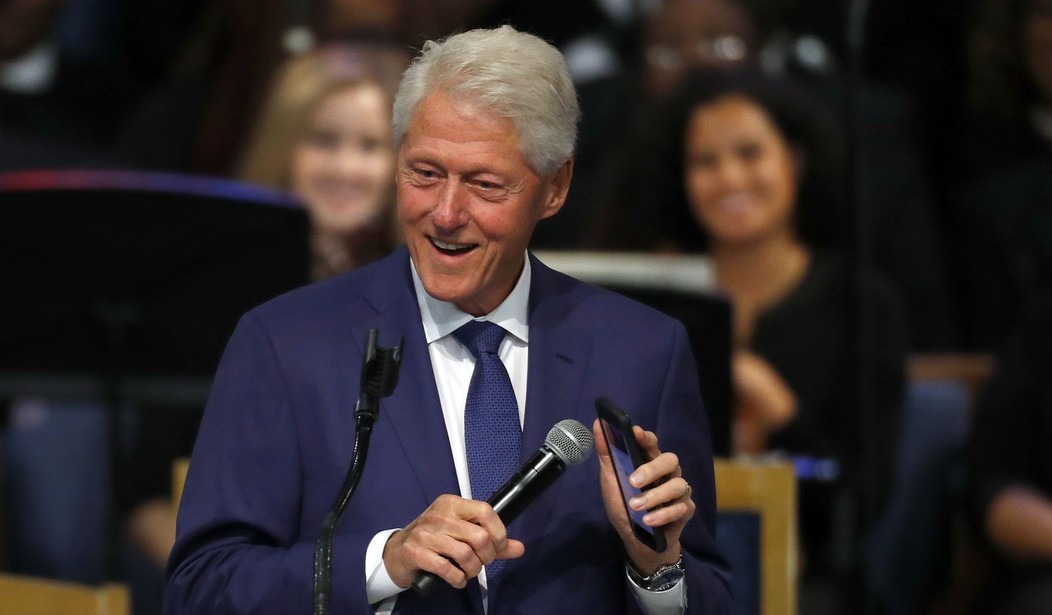We’re witnessing a clown show at the Justice Department and the courts. A judge, Bruce Reinhart, signed off the search warrant for Mar-a-Lago with ties to Jeffrey Epstein, which is not precisely a good company endorsement. He’s also virulently anti-Trump. Then, the same judge ruled that the affidavit that provided probable cause for federal agents to ransack the home of former President Donald Trump on August 8 will not be sealed indefinitely. Still, it’s also not going to be released either. Judge Reinhart refused to keep the affidavit under seal after federal prosecutors tried to block its release, noting that disclosing the document would damage the investigation’s integrity. Reinhart refused to accept that argument but allowed the Department of Justice to review and redact sensitive information about the case carefully. In other words, let the rogue Biden DOJ cover up the parts that make them look bad when they plotted this hit job.
Federal agents seized boxes of documents, some of which might have been declassified while others declared personal records. We’ll circle back to that in a second. The taking of Trump’s passports is how you know this search warrant wasn’t narrowly defined to classified materials. Some of the leaks about the documents the FBI suspected were on-site are fantastic lies so absurd that it makes the files on Roswell seem credible. The basis for the search has been eviscerated by former Justice Gorsuch law clerk Mike Davis who noted that the Presidential Records Act is not a criminal statute. The president is the ultimate authority in declassifying classified information, which the Supreme Court affirmed in 1988; the rules and regulations regarding classification do not apply to the presidency.
Even if sensitive materials were on the Mar-a-Lago grounds, they weren’t strewn about as you’d see in Ernest Hemingway’s office. They were secured as every former president has a staff upon leaving office. The act of taking them is the declassifying act. There is no actual law violation in the search warrant. Lastly, the government overclassifies everything. We will keep coming back to this, but one of the items the National Archives wanted back from Trump was a cocktail napkin.
So, back to the personal records angle in this FBI raid fiasco. Judicial Watch filed a legal motion to recover tapes reportedly stored in Bill Clinton’s sock drawer. This lawsuit happened ten years and was rejected by a judge since those tapes, which included conversations about Slick Willy’s presidency, the potential firing of a CIA director, and nominating Madeline Albright as secretary of state, were deemed personal records by Bill Clinton. The court also ruled that the National Archives had no legal authority to take them (via Washington Times):
Recommended
A 2012 court case denying access to White House audiotapes kept in former President Bill Clinton’s sock drawer after he left office could help the Trump legal team in its battle to retrieve records that the FBI seized from Mar-a-Lago this month.
The 10-year-old court ruling, issued by U.S. District Court Judge Amy Berman Jackson, rejected arguments by a conservative watchdog group that sought access to dozens of tapes recorded by Mr. Clinton and historian Taylor Branch during his administration.
Judge Jackson ruled that the tapes belonged to Mr. Clinton, even though the discussions included a broad range of presidential matters. The court ruled that the National Archives and Records Administration had no power to “seize control of them” because Mr. Clinton had used his authority under the Presidential Records Act to declare the recordings part of his personal records.
The Clinton case could impact the pending court battle over dozens of boxes of records that former President Donald Trump had declared personal, but which the FBI seized from his Mar-a-Lago home on Aug. 8.
[…]
In its lawsuit seeking the audiotapes taken by Mr. Clinton, Judicial Watch listed the critical presidential conversations recorded on the tapes that will never be made public.
The Clinton tapes included discussions of whether to fire CIA Director R. James Woolsey Jr., whether to nominate Madeleine K. Albright as secretary of state, foreign policy decisions, and Mr. Clinton’s side of telephone calls with foreign leaders, senators and Cabinet secretaries.
So, both Clintons could get away with legal matters involving documents, some of which were classified. The latter relates solely to Hillary Clinton, who destroyed 33,000 emails under federal subpoena, bleached her servers, and had a homebrew server from her house that was unsecured and unauthorized by the State Department in which she conducted all official business. She also transmitted classified information through that server, along with reportedly asking aides to alter classification markers on some communiqués. Foreign entities hacked it. She destroyed government-issued Blackberries with hammers. Hillary’s set-up was designed to avoid having her communications recorded. The FBI never raided her home. Bill Clinton had tapes that dealt with issues relating to his presidency, but he said they were personal records, so the courts ruled they couldn’t be touched.
We’ve seen this movie before.

























Join the conversation as a VIP Member